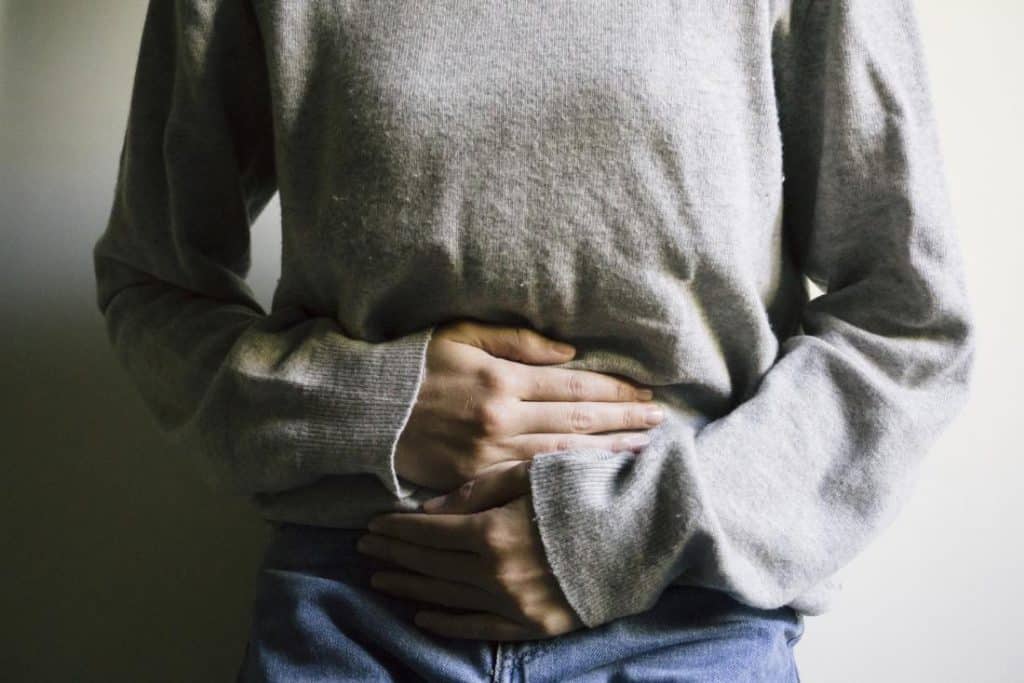
Implantation cramps are like a gentle reminder of the miracle happening within. As women embark on the journey of early pregnancy, these cramps make their presence known when a fertilized egg lovingly nestles itself into the lining of the uterus. Unlike the sometimes daunting menstrual cramps, implantation cramps tend to be softer and briefer. Today, we will take a closer look at these cramps, exploring their causes, how long do implantation cramps last, when does implantation cramping occur, and how they differ from other abdominal sensations. So, let’s dive in and understand implantation cramps together.
When Does Implantation Cramping Occur?
Implantation cramps occur approx. six to twelve days after ovulation implants itself in your uterus. This is an early sign that you might be pregnant and these cramps are normal during the early days of the pregnancy. However, not all women experience these cramps but when they do manifest you’ll experience twinges, mild aching, or a tingling sensation.
What do Implantation Cramps Feel Like?
The signs of implantation cramps include:
- – Light spotting or vaginal discharge
- – Slight bloating or abdominal discomfort
- – Breast tenderness or sensitivity
- – Mood swings or changes in emotional well-being
- – Fatigue or increased tiredness
Differences Between an Implantation Cramp and a Menstrual Cramp?
There are a few key differences to consider while differentiating between these two types of cramps. Implantation cramps:
- – Occur earlier in the menstrual cycle than menstrual cramps
- – Are usually milder in intensity
- – Last for a shorter duration
- – May be accompanied by light spotting or discharge
Ovulation Cramps Vs. Implantation Cramps
Ovulation cramps can feel similar to period pain, but the major difference between them is that it happens two weeks prior to your period. Whereas when we talk about implantation cramps occur toward the end of your cycle.
Factors Influencing the Intensity of Implantation Cramps
The intensity of implantation cramps can vary from woman to woman and can be influenced by several factors. These factors include:
- – Individual pain tolerance
- – Sensitivity of the uterine lining
- – Hormonal changes during pregnancy
- – Presence of underlying medical conditions
Common Misconceptions about Implantation Cramps
There are several misconceptions surrounding implantation cramps. Some common myths include:
- – Implantation cramps always cause severe pain
- – All women experience implantation cramps
- – Implantation cramps always result in vaginal bleeding
- – The presence of cramps indicates a problem with the pregnancy
Please note: Every woman’s pregnancy experience is different. However, implantation cramps should not cause excessive bleeding or severe pain.
When to Seek Medical Advice?
It is essential to consult a healthcare professional if you experience any of the following:
- – Severe or persistent abdominal pain
- – Heavy vaginal bleeding
- – Fever or chills
- – Fainting or dizziness
- – Unusual discharge with a foul odor
These symptoms could indicate an underlying issue that requires medical attention.
Tips for Managing Implantation Cramps
If you are experiencing discomfort due to implantation cramps, the following tips may help alleviate the symptoms:
- – Applying a warm compress to the lower abdomen
- – Engaging in relaxation techniques, such as deep breathing or meditation
- – Practicing light exercises, such as walking or gentle stretching
- – Consuming over-the-counter painkillers approved by your physician
Always consult your healthcare provider before consuming any medication while you are pregnant.
Other Signs of Implantation
There are a few other symptoms that you might experience around the same time that you have implantation cramps such as:
- – Breast tenderness
- – Fatigue
- – Dizziness
- – Headache
- – Food cravings or aversions
- – Moodiness
- – Implantation bleeding (light spotting)
- – Nausea
What If You Don’t Feel Implantation Cramps?
If you don’t feel these cramps that doesn’t mean that or the implantation process has gone wrong. There are women who don’t feel these cramps or some women don’t realize that they are experiencing implantation cramps. If you are trying to conceive and you don’t feel these cramps, there’s no reason to think that pregnancy is any less likely to occur.
Other Causes of Abdominal Pain During Early Pregnancy
There are other factors that can cause abdominal pain. These include:
- – Round ligament pain
- – Gas and bloating
- – Constipation
- – Urinary tract infections
Final Thoughts:
Early in pregnancy, implantation cramps can be a mildly painful yet fascinating experience. They may act as a gentle reminder that something extraordinary is happening inside your body, even if not all women experience them. These cramps are normally minor and transient, and they frequently come with light spotting or bleeding. Whether you’re hoping to get pregnant or are just interested in your body’s signals, it’s important to put self-care first and get medical help when necessary.





